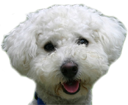Puppy Training: A Complete Schedule for 8-16 Weeks Old
Puppies learn every task through routines and schedules. Naturally, puppies learn from their moms like most animals. Once you bring them home, you become their leader and teach them everything from toilet training, feeding, and crate training to socialization.
When you set the ground rules for your puppy, it will make your life much easier when they grow up. Use the following puppy training schedule as a guideline to help raise your puppy into a well-mannered and happy dog.
Why Start Puppy Training at 8 Weeks?
It is best to start training as soon as you bring your puppy home. The best time to teach them is before they turn 16 weeks old, as they are curious and eager to listen and learn.
Once you bring them home, it is up to you to continue their mother’s teachings on how to perform daily activities.
Why Schedules and Routines are Useful for Puppy Training
Puppies can accomplish many things when they have a routine to follow. It helps them better understand the world around them and keeps the activities interesting. It also helps them develop self-confidence as they learn and gradually excel in dealing with new experiences and tasks.
Other benefits of a puppy training schedule include:
- Speeds up the process of house training
- Reduces the stress of being a new puppy parent
- Gives you a confident and happy puppy
What to Include in Your Daily Puppy Training Schedule
Below are a few daily activities you can include in your puppy’s daily training schedule:
- Potty training
- Sleep training, including teaching them where their bed is
- Food training, including correcting any food aggression
- Playing, chewing, sniffing, and tugging
- Socialization
- Field trips around the neighbourhood or in the car
- Life skills and obedience training
Although these activities may feel overwhelming, a daily routine will make it easy. Over time, you may change or adjust as your puppy gradually follows and settles in.
Useful Puppy Training Methods
Positive reinforcement training is the most popular method to train puppies. This system uses rewards to encourage a particular behaviour in your young dog. This reward-based method is scientifically proven to shape or change your puppy’s behaviour successfully. It also gives them the confidence to handle a new situation.
Puppies love praise and treats, and rewards make them more likely to repeat a behaviour. Good behaviours could be anything you want them to do, including following common verbal cues such as:
- Sit
- Lay down
- Settle
- Come back
- Heel
- Leave it
- Drop it
Some of the rewards you can use are:
- Treats or a favourite food
- Toys
- Praise
- Anything else that your puppy likes or finds rewarding
What Does Management Mean in Puppy Training?
Management means controlling things and situations around your puppy to help them avoid inappropriate behaviour or making mistakes. This method will stop bad behaviour, but it doesn’t teach your pup to develop a good habit. Preventing a negative situation is key to developing positive behaviour.
Here are a few examples of how you can practice management during puppy training:
- Crate train your puppy.
- Prevent your pup from entering a room by blocking the entryway with a baby gate
- Keep them on a leash to prevent jumping up on people or other animals
Best Times to Train a Puppy
When you start puppy training, you will have to adjust your personal schedule. Here are some easy times to remember to help you be consistent:
- In the morning: Start after your puppy has gone for the potty and use their favourite breakfast as a food reward
- After they have gone out after breakfast
- After they take a nap late in the morning
- Mid-day: Before you give your pet their lunch. You can use their food as treats.
- After their nap in the afternoon
- Dinner time: Before giving your pet their dinner. You can provide an extra treat for encouragement.
- Before bed
Being consistent with the schedule is vital to training your puppy. You will also need to have patience. Eventually, as you start seeing progress, it will encourage you and keep you excited to continue the activity until it becomes a habit for your pet.
A Good Puppy Training Schedule
This section focuses on the skills your puppy can develop quickly and will help you decide which to teach them week by week.
Week 8
- Teach them their name
- Teach them to sit without a cue
- Crate train your puppy
- Begin potty training
Week 9
- Teach them how to stay alone
- Continue with crate training
- Continue with potty training
- Call them with their name outdoors
- Start with verbal cues like sit and drop it
Week 10
- Teach them to recall cue words
- Train them to sit and greet
- Alone training
- Crate training
- Potty training
Week 11
- Alone training
- Crate training
- Potty training
- Walking on a leash
- Recall games
Week 12
- Alone training
- Crate training
- Potty training
- Recall games
- Walking on a leash outdoors
Week 13
- Teach verbal cues, including leave toys, follow me, watch me
Week 14 & 15
- Teach them to wait
- Walking with a friend’s dog
- Alone training
- Recall
Week 16
- Walking on the leash in busy places
- Practising exercise in different locations
- Teach a hand touch
- Familiarize them with nose work
Hire Our Experts for Hassle-Free Puppy Training
At Alpha Paws, we offer a puppy preschool program that helps you learn how to deal with everyday problems at a young age. Our experienced dog trainers analyze your pet’s temperament and personality and then teach you how to communicate with them. Understanding your puppy is crucial to ensuring successful training.
You can enroll in our at-home training that can be completed in one or three comprehensive sessions. Alternatively, you can also opt for our online puppy training conducted through Zoom calls. The sessions are one-hour long and customized to the needs of your puppy.
Consistent training is essential to retain good behaviour for the rest of their life. Even if your pup started training at an older age, we can help them get back on track.
For more information on our puppy training services, call us at 905-830-9500 or toll-free at 1-877-868-7297. You can also fill out our contact form with any questions you may have. We will be happy to assist you.
Also Read: A Complete Puppy Training Timeline to Teach Good Behaviour





